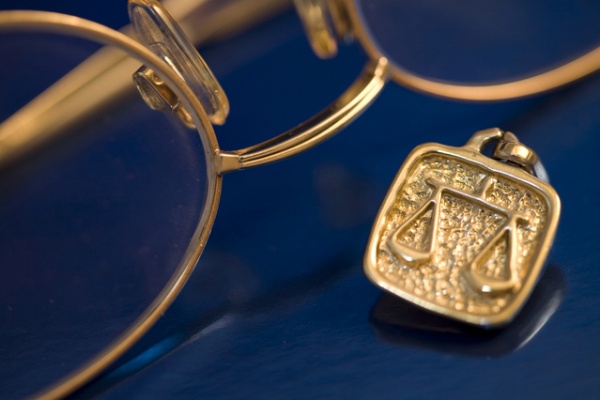10 College Degrees with the Worst Return on Investment
With the staggering cost of higher education, ROI must be given priority. Not all degrees are at par and hence selecting a college degree is as essential as investing in stocks. A little knowledge can go miles – that’s with most things.
Learning about college degrees and their outcomes could be enough to deter anyone from wasting time and money on a degree that does not pay off. Here are ten college degrees with the worst return on investment.
1 Philosophy
One of the reasons why so many college students choose philosophy is to learn how to use their minds. Philosophy teaches us to think, analyze, and question, and it helps us find that purpose of life. But is it worth money?Although the average salary keeps increasing, many students decide to change their career because they realize that philosophy is great for their minds, but not for their bank accounts. This college degree with the worst return on investment rarely returns educational investments.
2 Tourism
Tourism is highly popular these days. If you are lucky, you can earn pretty money. But most of the time, students don’t return their investments after graduation. Unless you are hired as a hotel resident manager right after graduation, you will have trouble to find a lucrative job in this field. Tourism graduates typically choose another career path. The average salary is between $42,533 to $55,476.
3 Education
Having one of the noblest professions, a teacher does not enjoy a high salary. The responsibility of this profession is extremely high, but the payment is very low. What about ROI? The average annual salary for teachers is between $32,040 to $52,200 per year. The cost of the degree starts from $50,000.The great news, though, is that the unemployment rate in the education field is very low. This means the majority of graduates choose to stay in their sector rather than look for another career path.
According to the latest PayScale statistics, the underemployed level in the education filed now equals 51.8%. This can lead to a significant shortage of teachers in the future. Despite this fact, many colleges encourage their students to focus on well-rounded learning to be ready to try another career after graduation.
4 Communications
Degree in communications could lead to a career in the realm of visual arts or broadcasting or media. Various statistics have predicted a drop of over 12% to 15% for reporters and correspondents up to the year 2020 or so.A growing number of students with a degree in communications graduate with tens of thousands of dollars in student debts. The worst is, many of them are unable to get a job that could pay the bills. This degree is nearly worthless because you can learn communications online these days and absolutely for free.
Meantime, positions for editors are expected to decrease by 2% and that for proofreaders and copy makers will also drop by 1-2%. None of these jobs are lucrative anyway.
5 Psychology
Learning the working systems of the human brain and actions of humans is all that you learn here. But that won’t let you become a psychologist, which is possible only if you have a doctoral degree. This leads one to become a psychiatric technician or a disorder counselor with an average pay of say $30,000 to $35,000. The statistics are disturbing with the probability of such employment increasing merely by 2-3% in the coming decade.Read also – 8 Online Schools That Offer Free Laptops
6 Fashion design
While many people enter this arena without any degree at all, most professional designers do hold a degree in fashion designing. In fact, the most important qualities for a career in fashion designing are the inherent skill to design clothing, sense of style and artistic taste. In their absence, even the best college may not be able to teach them.But securing a job here, with or without the degree is not all that easy. But the statistics are gloomy with predictions of decrease in designers up to 5% in the coming 8-10 years. If you can find employment or make a career, the earnings are not that bad, and that won’t matter whether you have a degree or not.
Read also – 5 Inspiring Lessons to Learn from Estee Lauder
7 Sociology
Want to study how societies function and work? Only if you decide to pursue a career as a social worker or a correctional officer. Prospects don’t look bright at all here. Job openings for correctional treatment specialists and probation officers are likely to increase just by 1-2% in the next decade.Opportunities for social workers may see a rise of approximately 10%. Earnings for such fields are not very encouraging that currently stand at $38,000 – for correctional treatment specialists while for correctional officers and jailers it rests around $39,500.
8 Liberal arts
This college degree is not specialized to prepare you for a specific career. Students don’t know where to land and they end up working in an entirely different field like brokers, real estate, finance, sales, insurance agents, etc. Liberal arts majors have been red-marked as a group that ‘fared poorly’ even as late as 2016 when it came to overall employment probabilities, which proves that though you may be a well-rounded person, it won’t necessarily help you get a decent job.Nowadays many liberal arts colleges are trying to provide their students with a well-rounded education. This way, liberal arts majors will be able to try a variety of careers, which are not necessarily related to the arts. Yet, most of the graduates still struggle to find a way to make a living.
9 Fine arts
Fine arts degree could help in some artistic fields like music, photography or performing arts. Taking a few studio classes or making sculptures somewhere may take you along the same journey. Either way, it doesn’t look all that bright to begin with. Employments for artists and photographers could vary between 0.6% to 1.5% as there are estimates to find employment and demand for video and still photographers going up around 5% in the long run of the next ten years.Earnings in these fields are also dismal varying between $28,000 to $35,000. Fine artists may be earning a little higher – around $40,000. In fine, your opportunities are better only if you are truly gifted and driven.
10 Criminal justice
This degree would make sense only in very specific fields. For instance, if you work as a police officer or detective, which may not be an honest choice. In fact, these professions typically require training at an academy from their agency and a fixed number of job training hours.Even if these professions did require a degree in criminal justice, the scope for jobs is not much. The global estimate shows that employment for police patrols may rise by 6% and that of criminal investigators by a mere 2% in the next decade or so.
Read also – 7 Best Part-Time Jobs for a College Student
Various studies have shown degree holders earn more than those with high school degrees over a lifetime. With inflation increasing faster, the weak economy has led to a higher cost of education. Education loans are going to find grads struggling to pay the loans and hence the obvious question is “Is it worth the degree?”


















